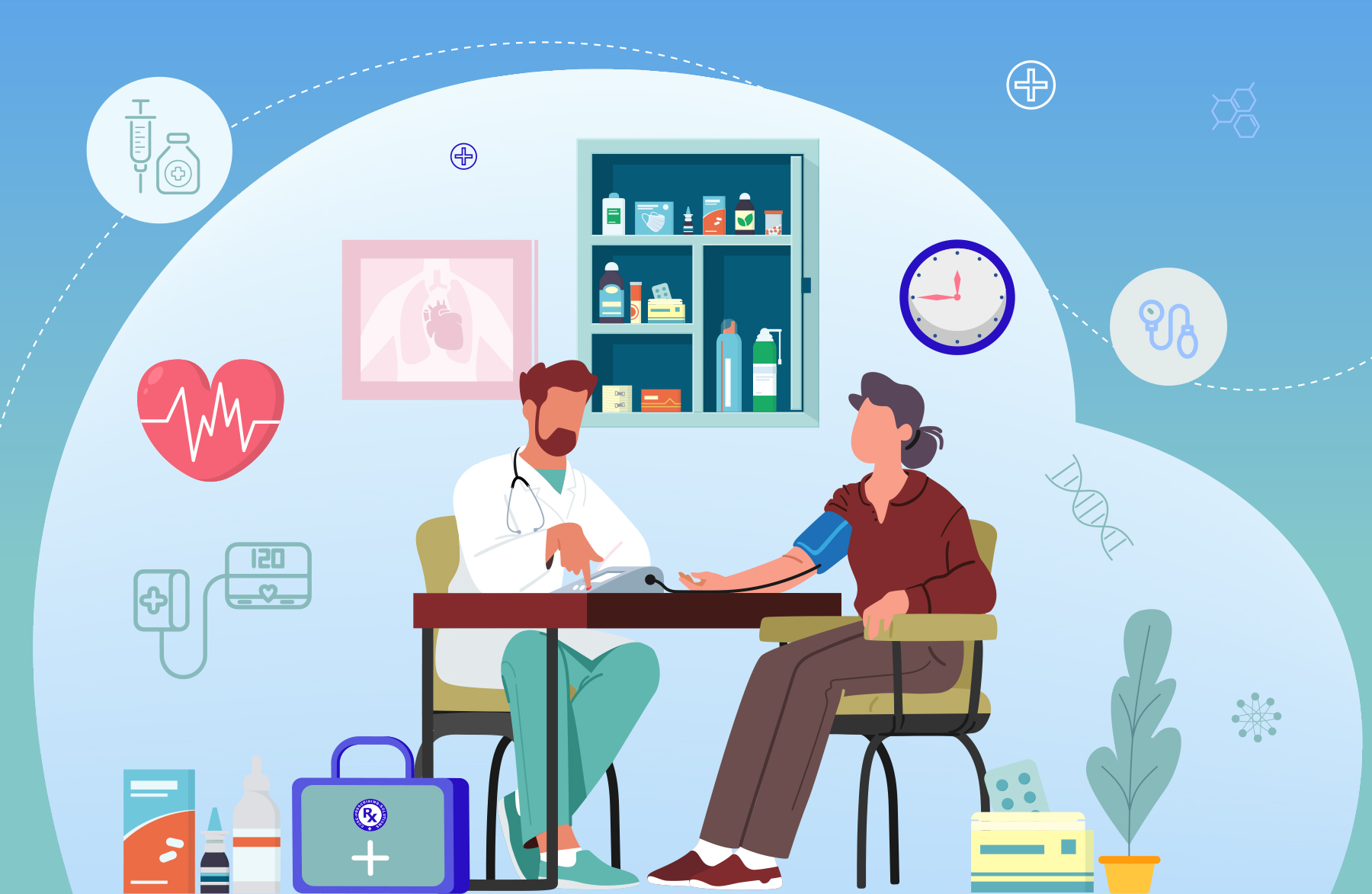Pelvic floor health is crucial to a woman’s overall well-being, yet it often goes unnoticed until problems arise. Whether you’re dealing with incontinence, pelvic floor dysfunction, or recovering from childbirth, strengthening and maintaining the pelvic floor is essential for urinary health, core stability, and even emotional well-being. While Kegel exercises are well-known for pelvic floor strengthening, there’s a broader range of exercises and techniques that can significantly improve bladder control and pelvic health.
In this blog, we’ll explore a variety of pelvic floor exercises, bladder training techniques, and lifestyle adjustments that go beyond the basic Kegel to help you achieve better bladder control and pelvic health at every stage of life.
What is the Pelvic Floor?
The pelvic floor is a group of muscles that form a supportive sling at the bottom of your pelvis. These muscles help control bladder and bowel movements, support the uterus, and play an important role in sexual health. Over time, factors such as pregnancy, childbirth, aging, and weight changes can weaken these muscles, leading to urinary incontinence, pelvic organ prolapse, and other pelvic health issues.
Fortunately, with consistent pelvic floor exercises and awareness, many of these issues can be improved or even prevented.
Understanding Kegels—and Beyond
Kegel exercises are the most common recommendation for strengthening the pelvic floor. These involve contracting and relaxing the pelvic floor muscles, which can help improve bladder control. However, Kegels alone might not be enough for everyone. For women dealing with specific pelvic health challenges—such as pelvic floor dysfunction, incontinence, or postpartum recovery—additional exercises and techniques are necessary.
Pelvic Floor Exercises for Better Bladder Control
- Deep Core Activation: Pelvic floor health is closely linked to core strength. Strengthening the deep core muscles can provide additional support to the pelvic floor. One effective exercise is the dead bug:
- Lie on your back with your knees bent at a 90-degree angle and arms extended straight up toward the ceiling.
- Slowly lower your right arm and left leg toward the floor while keeping your lower back pressed into the ground.
- Return to the starting position and repeat with the opposite limbs.
This exercise helps activate both the pelvic floor and deep core muscles, improving stability and support.
- Pelvic Tilts: Pelvic tilts are simple yet effective in engaging the pelvic floor muscles. To perform this exercise:
- Lie on your back with your knees bent and feet flat on the floor.
- Gently flatten your lower back against the floor by tilting your pelvis upward.
- Hold the position for a few seconds, then relax and repeat.
This exercise helps improve core stability and pelvic floor strength, which can reduce bladder leakage.
- Bridges: Bridges target both the glutes and pelvic floor muscles, enhancing strength and stability in the pelvic region.
- Lie on your back with your knees bent and feet flat on the floor.
- Lift your hips off the ground, squeezing your glutes and pelvic floor muscles at the top.
- Lower your hips back down and repeat the movement.
This exercise strengthens the glutes, core, and pelvic floor muscles, helping to alleviate urinary incontinence.
- Squats: While squats are often associated with leg strength, they also engage the pelvic floor and core muscles. To perform a pelvic-friendly squat:
- Stand with your feet shoulder-width apart and toes slightly turned out.
- Bend your knees and lower your hips, keeping your back straight and your knees aligned with your toes.
- Return to standing and repeat.
Squats improve lower body strength, which can support pelvic health and reduce incontinence.
- Yoga for Pelvic Floor Health: Yoga is an excellent way to combine pelvic floor strengthening with mindfulness. Certain yoga poses, such as Supta Baddha Konasana (Reclining Bound Angle Pose) or Malasana (Garland Pose), can target pelvic floor relaxation and strengthening.
- Supta Baddha Konasana: Lie on your back with the soles of your feet together and knees wide apart. Allow your pelvic floor to relax as you breathe deeply, helping to release tension.
- Malasana: Stand with feet slightly wider than hip-width apart, lower into a squat position, and hold. This pose opens the hips and strengthens the pelvic floor.
These yoga poses help activate the pelvic muscles in a relaxed state, promoting both strength and flexibility.
Bladder Training Techniques
In addition to pelvic floor exercises, bladder training techniques can help improve bladder control and reduce urinary urgency or frequency. Here are some methods to incorporate into your routine:
- Timed Voiding: Timed voiding involves scheduling bathroom visits at regular intervals, even if you don’t feel the urge to go. Over time, this helps train your bladder to hold more urine and improve control.
- Bladder Diary: Keeping a bladder diary can provide valuable insights into your bladder habits. Record the times you urinate, the amount of urine, and any accidents or urgency. This can help identify patterns and areas for improvement.
- Gradual Delay: If you frequently experience the urge to urinate, try waiting a few minutes before going. Gradually increase the time between urges to help train your bladder to hold more urine without discomfort.
- Relaxation Techniques: If you experience urgency or leakage due to anxiety, practicing relaxation techniques such as deep breathing or progressive muscle relaxation can help manage the symptoms. This can reduce the involuntary contraction of the pelvic floor and bladder muscles, improving bladder control.
Postpartum Pelvic Floor Care
After childbirth, it’s crucial to take extra care of the pelvic floor, as the muscles may have been stretched or weakened during labor. Starting with gentle pelvic floor exercises can aid in recovery and prevent long-term issues like incontinence or pelvic organ prolapse. Postpartum pelvic floor care may include:
- Pelvic floor relaxation techniques: Gently stretch and release the pelvic floor muscles after childbirth to ease tension.
- Gradual strengthening: Start with basic Kegels and progress to more dynamic exercises like bridges and core activation as your strength returns.
- Professional pelvic floor therapy: If you experience significant pelvic floor issues after childbirth, working with a pelvic floor therapist can provide tailored exercises and strategies for recovery.
Pelvic Floor Dysfunction and Therapy
Pelvic floor dysfunction refers to a group of disorders that involve difficulty controlling the pelvic floor muscles, leading to issues such as urinary incontinence, pelvic organ prolapse, and constipation. If you’re dealing with pelvic floor dysfunction, working with a pelvic floor therapist can be incredibly helpful. These therapists are trained to assess muscle strength, teach effective exercises, and provide treatments such as biofeedback or manual therapy to improve pelvic health.
Safe Pelvic Floor Workouts
If you have pelvic floor concerns or are recovering from childbirth, it’s essential to perform pelvic floor exercises safely. Some general guidelines include:
- Start slow: If you’re new to pelvic floor exercises, begin with simple Kegels and progress to more complex exercises as you build strength.
- Don’t overdo it: Over-exercising the pelvic floor muscles can lead to tension and discomfort. Focus on quality over quantity.
- Listen to your body: If you experience pain, discomfort, or leakage while performing exercises, stop and consult a healthcare professional for guidance.
Final Thoughts
Bladder control and pelvic health are integral to a woman’s overall wellness, yet they are often overlooked until problems arise. By incorporating a variety of pelvic floor exercises, bladder training techniques, and mindful practices into your routine, you can significantly improve your pelvic health, prevent incontinence, and enhance your quality of life. Whether you’re postpartum, managing pelvic floor dysfunction, or simply looking to improve core stability, it’s never too late to start focusing on your pelvic floor. Empower yourself with knowledge and practical exercises, and take control of your pelvic health today.








































